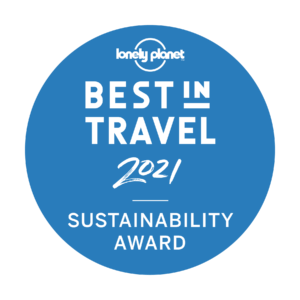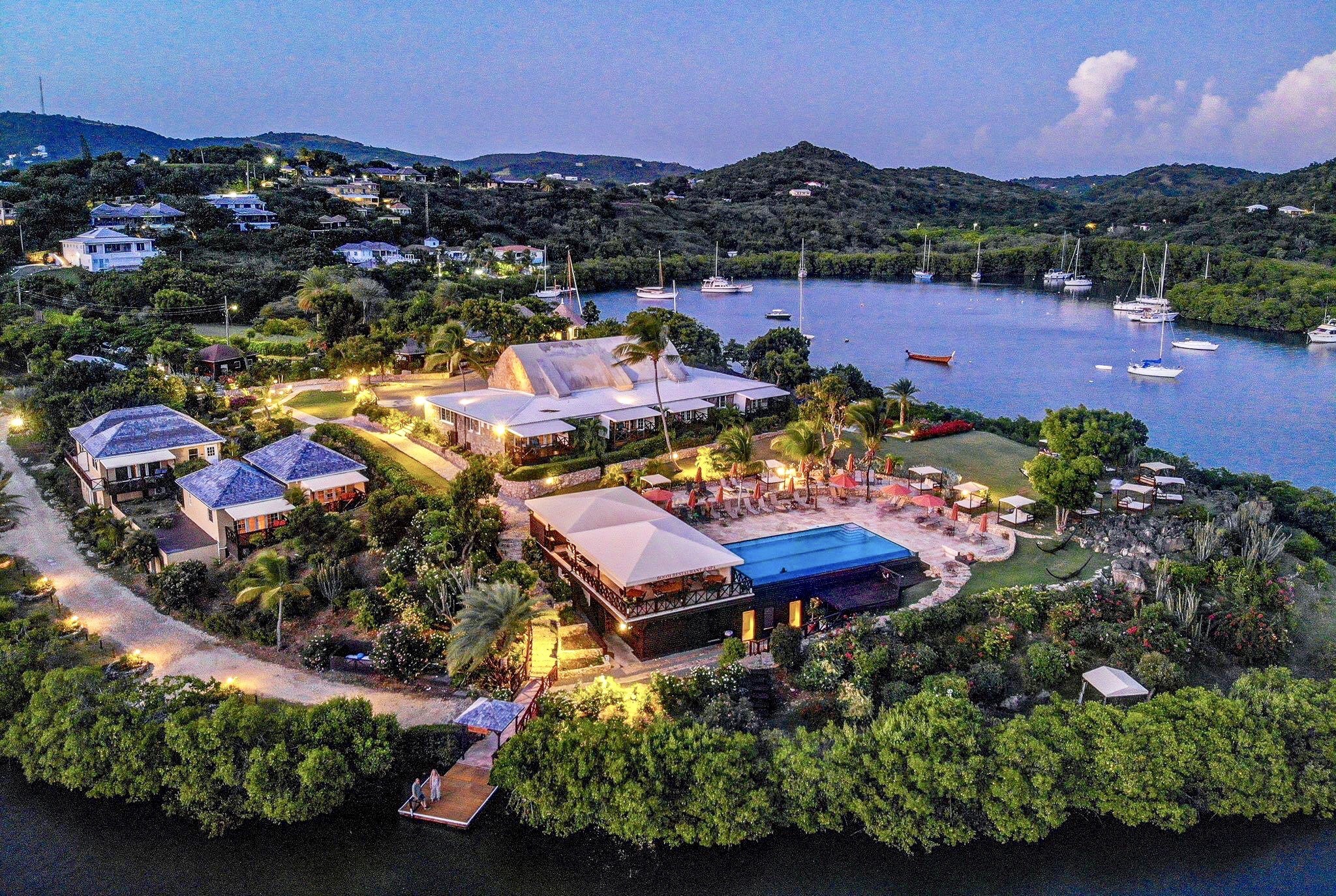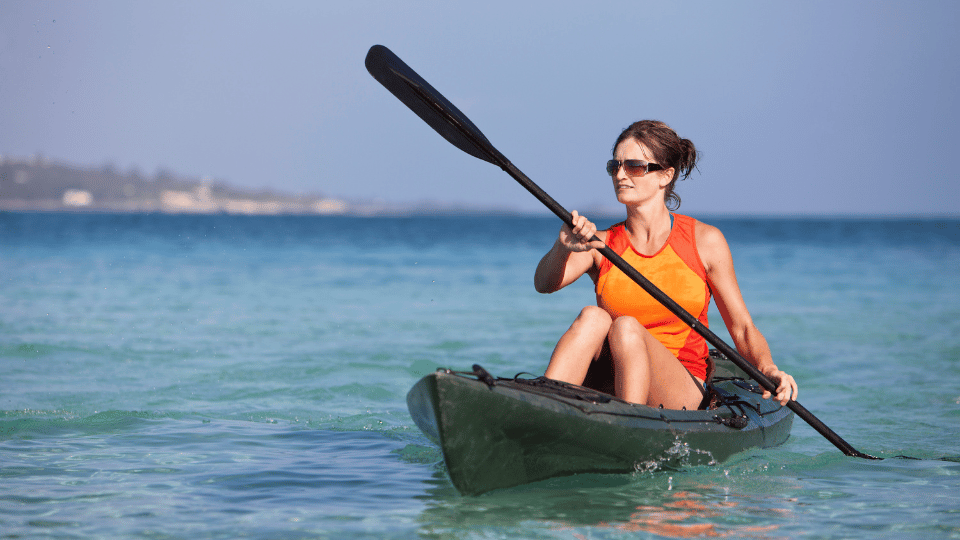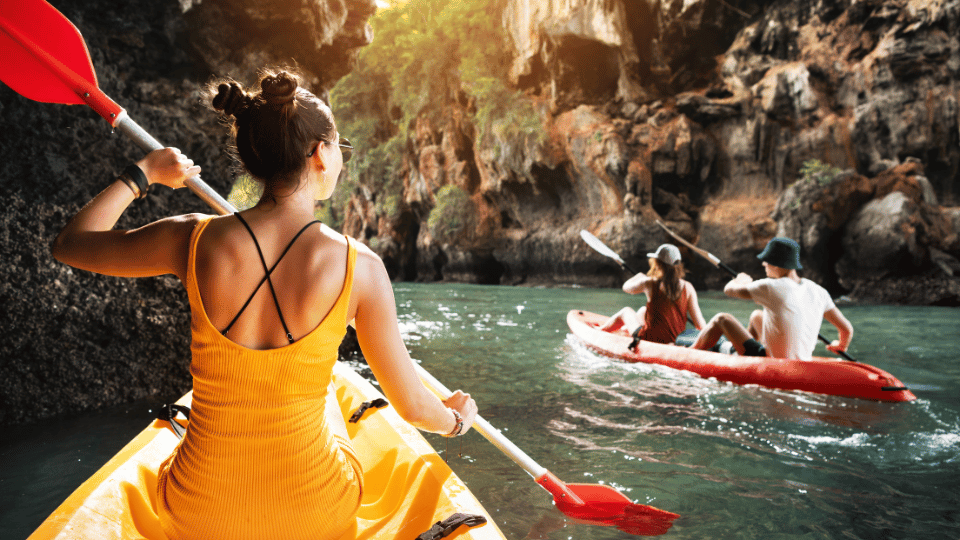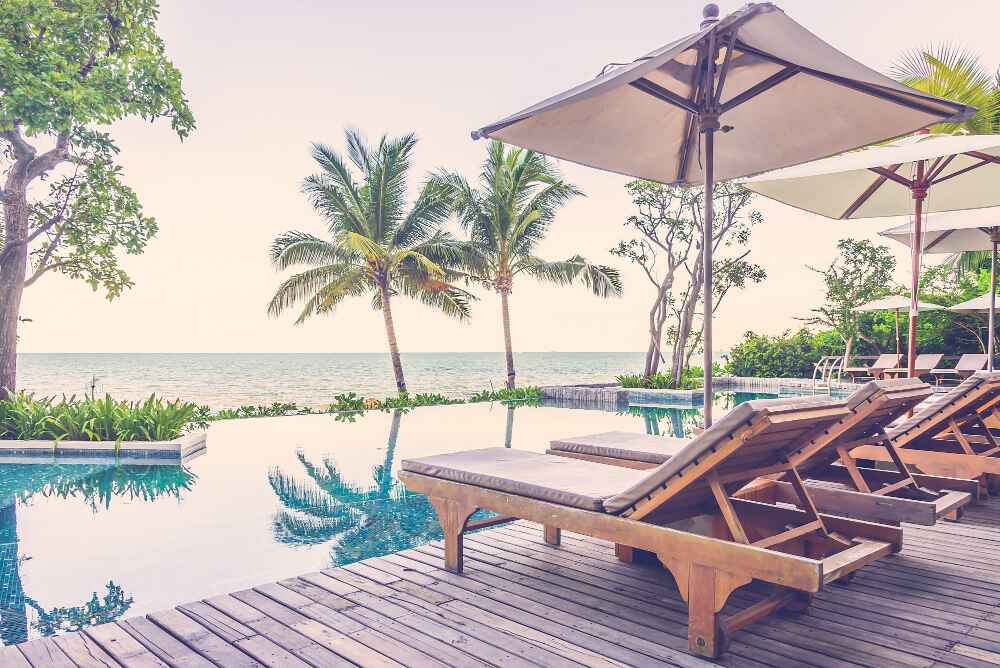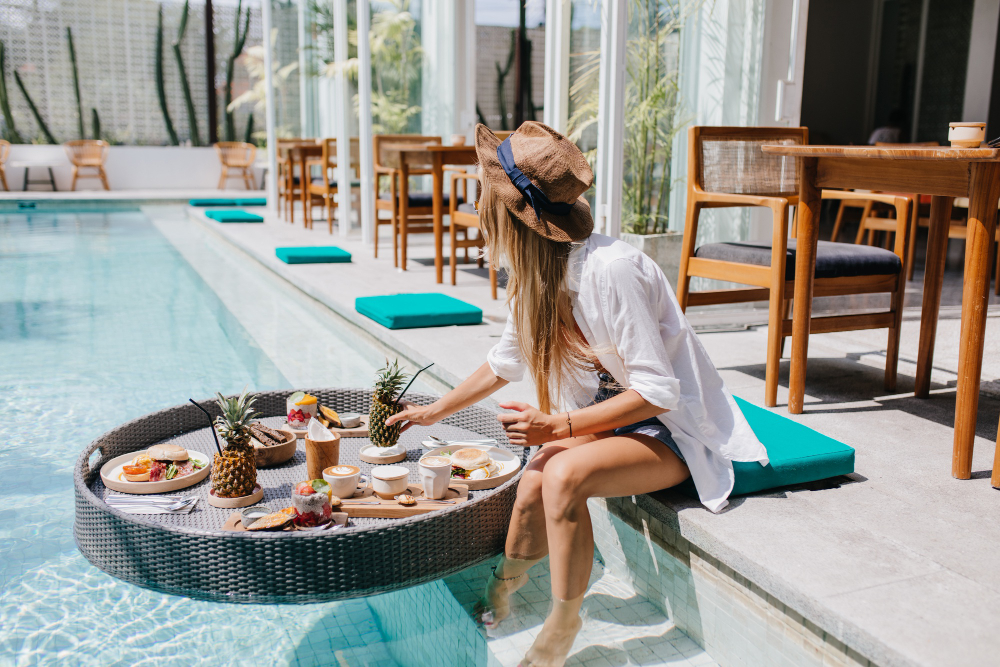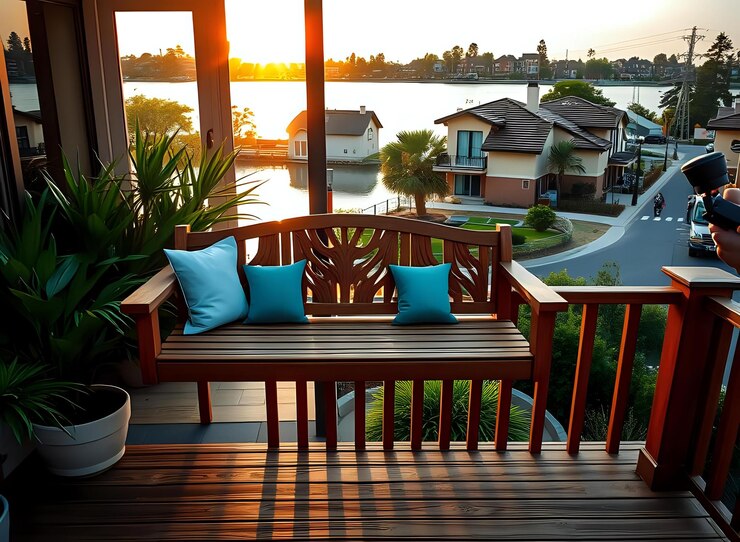Antigua and Barbuda through its Ministry of Tourism and Investment, is focused on a sustainable path towards Tourism Development. Hence, the destination is committed to capturing the economic benefits of Tourism while limiting the undesirable environmental and socio-cultural consequences of unplanned Tourism. Hence, we will work with all stakeholders to proactively address critical issues.
One of the World’s Sustainable Destinations
Antigua & Barbuda Embraces Green
In a destination known for 365 of the bluest blues with turquoise seas and azure skies, Antigua and Barbuda is highlighting another side of its gorgeous landscape on the south-west coastline; focusing on its lush green rainforest, rolling hills, environmentally aware hotels, restaurants and activities that surround the area now known as ‘The Green Corridor’.
Visitors are being encouraged to journey to Antigua and Barbuda to experience the Green Corridor, which stretches along the south-west coast from the village of Bolans to the village of John Hughes in Antigua.
The Green Corridor launched in July 2017, during the International Year of Sustainable Tourism. It is a designated area of Antigua where the businesses that are directly and indirectly related to tourism and have agreed to a set of principles based on respect for local culture, positive influence on the local community, environmental stewardship and economic viability while maintaining all of these, are highlighted, and promoted.
Senior Sustainable Tourism Officer and head of the Sustainable Tourism Unit in Antigua and Barbuda’s Ministry of Tourism, Vashti Ramsey-Casimir says, “The South side was chosen as it has the highest scenic value on island. It also has the highest concentration of locally owned and managed tourism businesses that are all making steps towards achieving the aforementioned principles.”
Visitors planning to experience the Green Corridor can expect excursions, restaurants and hotels that promote environmental stewardship, local economic benefits, social responsibility, and cultural preservation.
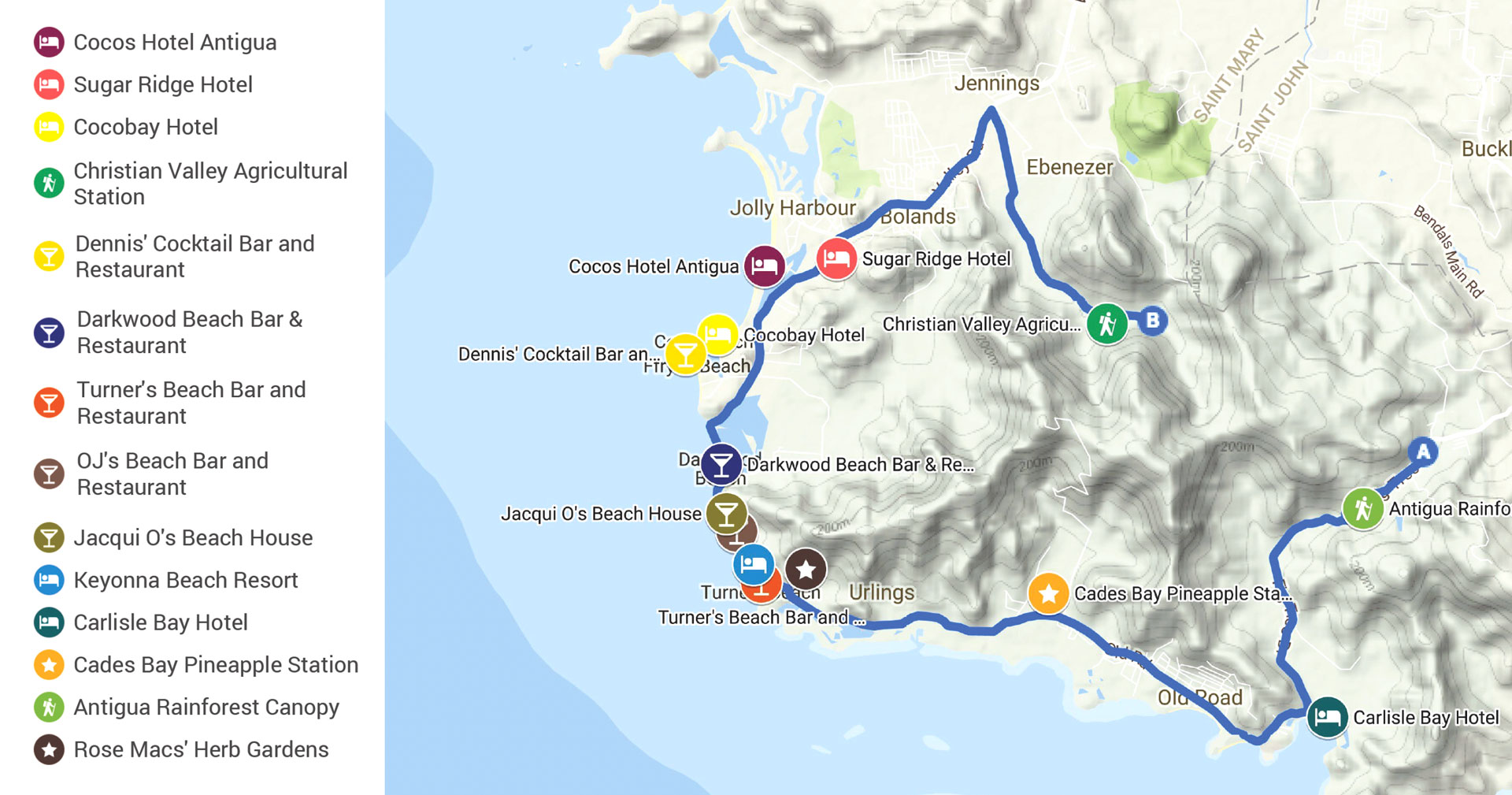
Green Corridor Road Map
Popular beach bars and restaurants such as Dennis’ Beach Bar & Restaurant, Darkwood Beach Bar & Restaurant, Jacqui O’s Love Beach, Turner’s Beach Bar and Restaurant and Cavell’s Street Side Restaurant offer visitors a ‘Farm to Table’ experience within the Corridor. Cuisine is prepared using herbs and vegetables picked fresh from vegetable gardens on the properties or sourced at the local market.
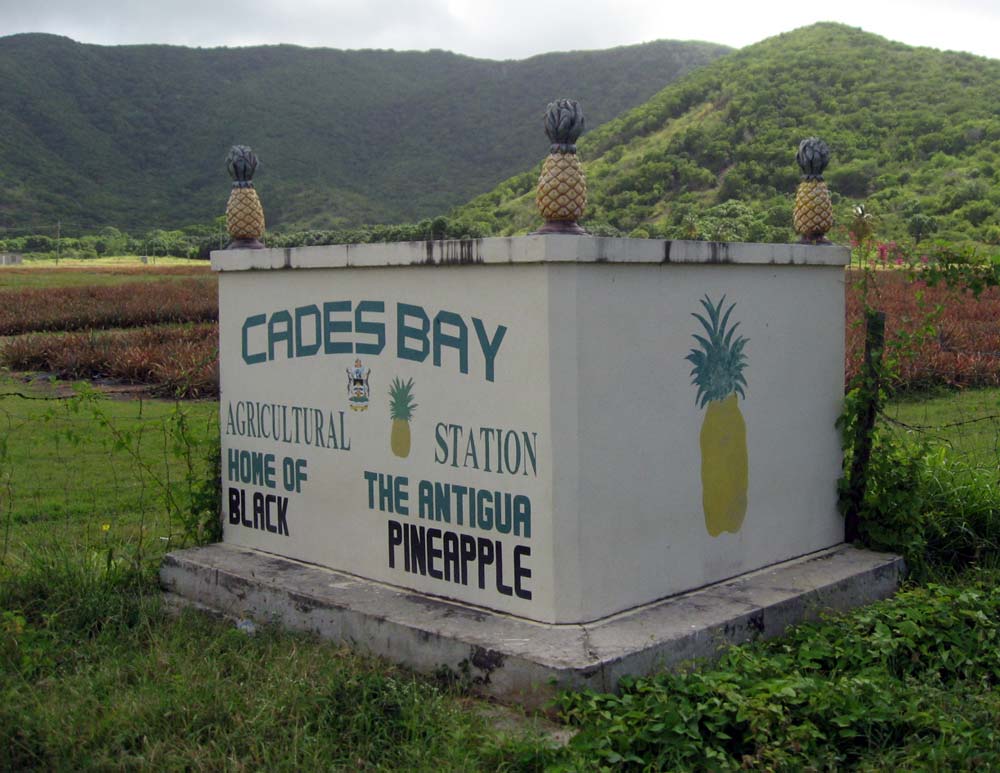
Cades Bay Agricultural Station
One of the sweetest pineapples in the world, the Antigua Black pineapple is also grown in the area at the Cades Bay Agriculture Station’s Pineapple Farm. While the pineapple farm is visible from the main road, visitors wishing to explore the farm are asked to enquire at the station. The pineapples and other fresh fruits and vegetables can be found at fruit stalls along Fig Tree Drive which are overflowing with produce grown in the rainforest.
The dramatic and undulating landscape of the Green Corridor also presents a wonderful opportunity to take on many moderate to strenuous hiking trails. Popular hikes in the area include Antigua and Barbuda’s highest peak Mount Obama, and the second highest Signal Hill with Wallings Dam at the base providing the perfect cool-down picnic spot. The adventurous and more skilled hiker may also explore the Rendezvous Bay hike with multiple trails to one of the island’s untouched beaches, and scenic views of the Caribbean Sea, Montserrat, Guadeloupe and Redonda which are all visible on a clear day.
Green Corridor visitors can also visit the Wallings Nature Reserve operated by villagers in the John Hughes community. Participants receive historic information on the location, and are able to book scenic hikes through Wallings.
In Turtle-watching season which runs from July – September, the Darkwood beach becomes a turtle-watching spot, with visitors welcomed at beach bars to search for nesting turtles or to witness turtles hatching under the moonlight.
Antigua’s sister island Barbuda is also heading in the green direction. Already labeled as a nature lover’s paradise, Barbuda is filled with experiences that are sure to appeal to eco-aware travelers. One of the few Caribbean islands with pink sand beaches, Barbuda boasts a spectacular 17-mile stretch of pristine, unbroken beach.
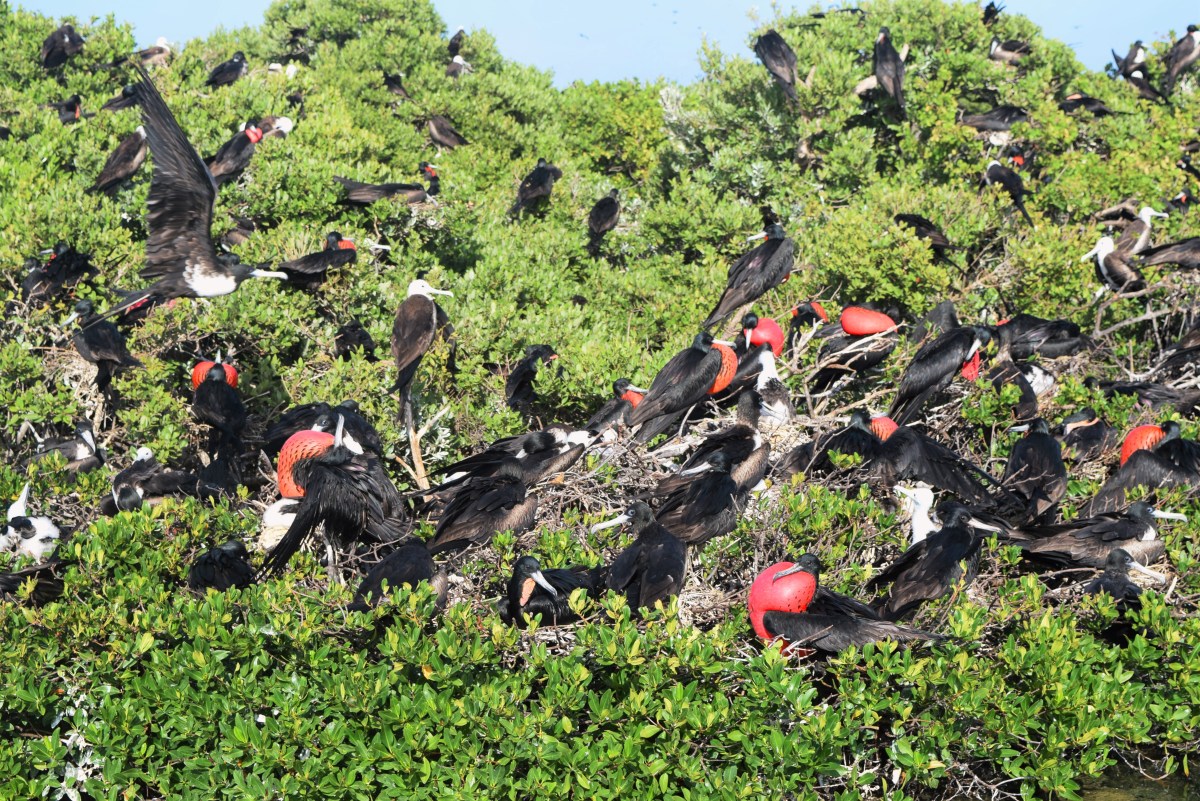
Barbuda Frigate Bird Sanctuary
The island is also home to the largest Frigate Bird sanctuary in the western hemisphere. Accessible only by boat, the Frigate Bird Sanctuary contains over 170 species of birds in addition to the more than 5,000 Frigate birds that call Barbuda their home. Barbuda’s caves, to include the Darby Cave, Indian Cave and the Caves at Two Foot Bay are also worth exploring; and visitors on a hike through Indian Cave will discover ancient Amerindian petroglyphs.
So, while the islands are best known for their 365 fine white and pink sandy beaches, friendly people and year-round sunshine with the demand by travelers for more eco-friendly and authentic experiences, Antigua and Barbuda’s natural environment answers the call.
Antigua And Barbuda Named Lonely Planet’s Emerging Sustainable Destination Of The Year
Antigua and Barbuda recognized as Emerging Sustainable Destination for 2021 by Lonely Planet.
Unveiling a radical reimagining of its much-awaited Best in Travel picks for 2021, Lonely Planet is looking ahead to the important changes taking place globally, from sustainability to diversity, and shining a light on the future of travel. This year, Antigua and Barbuda has been heralded out as one of the destinations who are transforming the travel industry. Click icon below for more information on this award.
Green Tourism Initiative
The policies below are shared by the Ministry of Health and extended to all tourism businesses. The Antigua & Barbuda Ministry of Tourism has been working with them through the Green Tourism Initiative to ensure that there is compliance. The key areas focused on are Energy Consumption/Efficiency and Use of Renewable Energy, Water Consumption, Waste Disposal Practices, Green Building practices, Green Operations, Promoting local economy, Employee Engagement, Social responsibility, Customer Education, Conservation practices.
The Green Tourism Initiative now includes the Green Fins Programme. This is a UNEP Certification Programme and Antigua and Barbuda is the only country to have instituted this in the Western Hemisphere. It is the only recognized environmental set of standards with a comprehensive management approach to provide guidance and support for diving and snorkelling business owners to promote best practices. Scooter Snorkelling, Jolly Dive, Adventure Antigua, South Coast Horizons, Antigua Reef Riders, and Dive Caribe are all certified. The programme will continue in 2021 as the COVID-19 Pandemic suspended its implementation.
Click to access Green-Fins-iconsENGA4.pdf
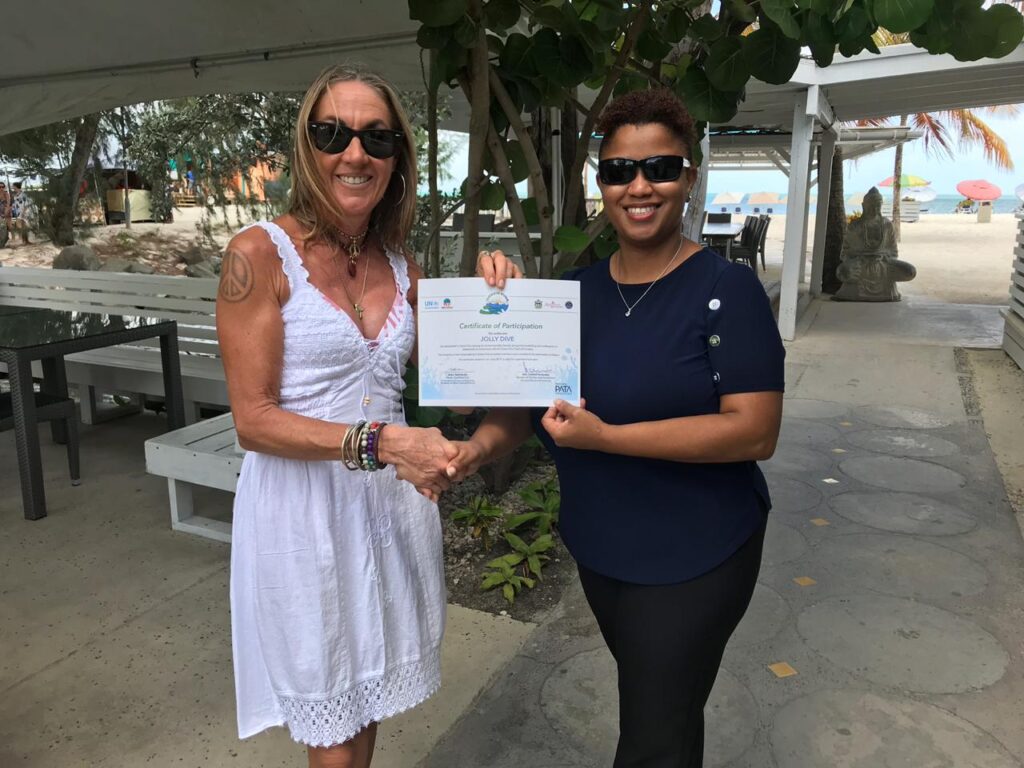 Jolly Dive Receiving Ceritificate
Jolly Dive Receiving Ceritificate
Plastics and Styrofoam
As it relates to the ban on Plastics and Styrofoam, please see below for the complete schedule.
Plastic bags: Absolutely no establishment should be using any shopping plastic bags those who were given the extension has up to December 31, 2018, to use and that is specific to High-Density Polyethylene bags.
The restriction stages of Styrofoam Ban:
Stage one (1) began July 1st, 2017 with six (6) months interval for the depletion of stock on hand and sale concluded on December 31st, 2017. Food service containers (clamshells, hinge containers, hot dogs and all other containers made of EPS, bowls, plates, hot and cold beverages cups and cup lids)
Stage two (2) commenced on January 1st, 2018 with six (6) months interval for the depletion of stock on hand and sale to be concluded on June 30th 2018. However, this was extended to January 2019. Plastic utensils ( spoons, forks, knives, straws) fruit trays, vegetables trays, meat trays, and egg cartons.
Stage three (3) restrictions commenced on July 1st 2018 and will conclude on January 1st 2019.Polystyrene naked coolers.
The ban extends to all businesses within (Food Service Industry) to include supermarkets (large /small), grocery store, Hotels and catering industry in Antigua and Barbuda.
By the end of January 2019, all Polystyrene and and Plastics would have been completely banned – first country in the region to do so.
Approved list of products:
Sugar Cane (Bagasse), PLA Cornstarch, Wheat Straw, Bamboo, Potato Starch, Areca Palm, and Cardboard / Paper products
Coolers: Mycelium, Mushroom, Green Cell Foam
Tobacco Control Act
cap-430-Tobacco-Control-Act (PDF)
